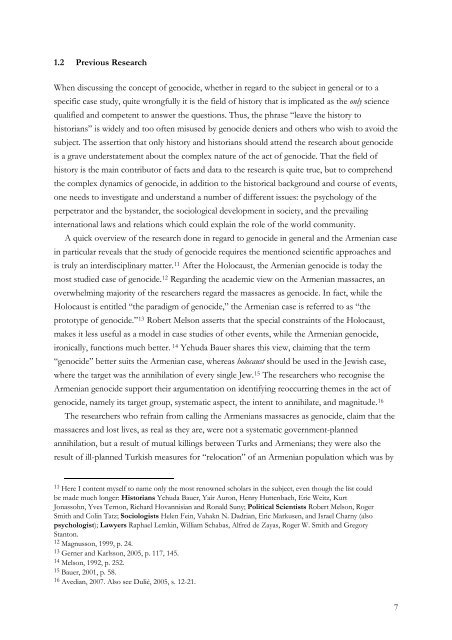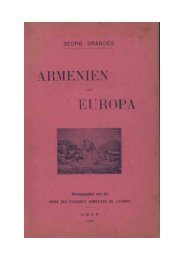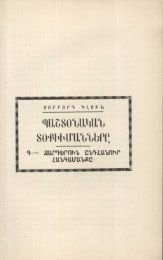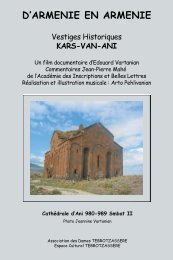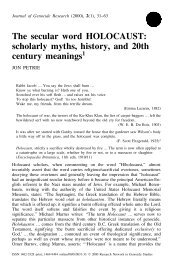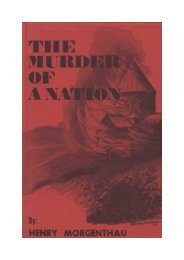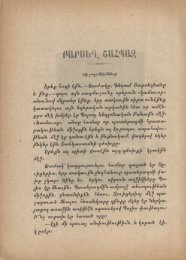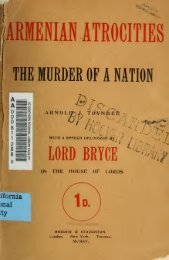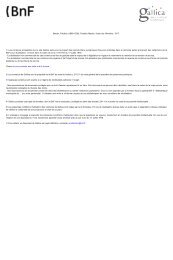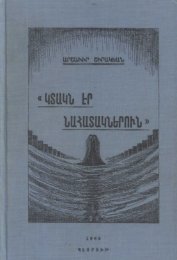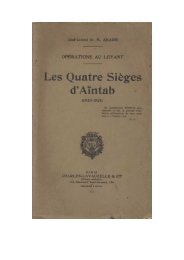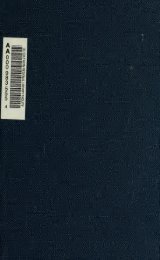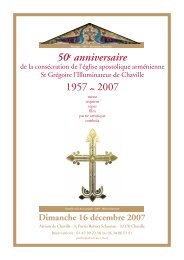Ãmnet för min C-uppsats handlar om diskussionen om vad som kan ...
Ãmnet för min C-uppsats handlar om diskussionen om vad som kan ...
Ãmnet för min C-uppsats handlar om diskussionen om vad som kan ...
- No tags were found...
You also want an ePaper? Increase the reach of your titles
YUMPU automatically turns print PDFs into web optimized ePapers that Google loves.
1.2 Previous ResearchWhen discussing the concept of genocide, whether in regard to the subject in general or to aspecific case study, quite wrongfully it is the field of history that is implicated as the only sciencequalified and c<strong>om</strong>petent to answer the questions. Thus, the phrase “leave the history tohistorians” is widely and too often misused by genocide deniers and others who wish to avoid thesubject. The assertion that only history and historians should attend the research about genocideis a grave understatement about the c<strong>om</strong>plex nature of the act of genocide. That the field ofhistory is the main contributor of facts and data to the research is quite true, but to c<strong>om</strong>prehendthe c<strong>om</strong>plex dynamics of genocide, in addition to the historical background and course of events,one needs to investigate and understand a number of different issues: the psychology of theperpetrator and the bystander, the sociological development in society, and the prevailinginternational laws and relations which could explain the role of the world c<strong>om</strong>munity.A quick overview of the research done in regard to genocide in general and the Armenian casein particular reveals that the study of genocide requires the mentioned scientific approaches andis truly an interdisciplinary matter. 11 After the Holocaust, the Armenian genocide is today themost studied case of genocide. 12 Regarding the academic view on the Armenian massacres, anoverwhel<strong>min</strong>g majority of the researchers regard the massacres as genocide. In fact, while theHolocaust is entitled “the paradigm of genocide,” the Armenian case is referred to as “theprototype of genocide.” 13 Robert Melson asserts that the special constraints of the Holocaust,makes it less useful as a model in case studies of other events, while the Armenian genocide,ironically, functions much better. 14 Yehuda Bauer shares this view, clai<strong>min</strong>g that the term“genocide” better suits the Armenian case, whereas holocaust should be used in the Jewish case,where the target was the annihilation of every single Jew. 15 The researchers who recognise theArmenian genocide support their argumentation on identifying reoccurring themes in the act ofgenocide, namely its target group, systematic aspect, the intent to annihilate, and magnitude. 16The researchers who refrain fr<strong>om</strong> calling the Armenians massacres as genocide, claim that themassacres and lost lives, as real as they are, were not a systematic government-plannedannihilation, but a result of mutual killings between Turks and Armenians; they were also theresult of ill-planned Turkish measures for “relocation” of an Armenian population which was by11 Here I content myself to name only the most renowned scholars in the subject, even though the list couldbe made much longer: Historians Yehuda Bauer, Yair Auron, Henry Huttenbach, Eric Weitz, KurtJonassohn, Yves Ternon, Richard Hovannisian and Ronald Suny; Political Scientists Robert Melson, RogerSmith and Colin Tatz; Sociologists Helen Fein, Vahakn N. Dadrian, Eric Markusen, and Israel Charny (alsopsychologist); Lawyers Raphael Lemkin, William Schabas, Alfred de Zayas, Roger W. Smith and GregoryStanton.12 Magnusson, 1999, p. 24.13 Gerner and Karlsson, 2005, p. 117, 145.14 Melson, 1992, p. 252.15 Bauer, 2001, p. 58.16 Avedian, 2007. Also see Dulić, 2005, s. 12-21.7


